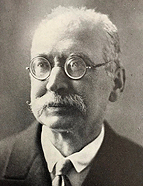

Secondly, the HIP shows didactic care in the systematisation of subjects and their presentation. Finally, its internal organisation is indebted to the coeval perspective that , with regard to the religious phenomenon, valued, above all, its institutional dimension. This characteristic is reinforced by the periodisation that follows the chronological outline of the reigns, which would not be unrelated to the attempt to highlight the importance that the Catholic Church would have had in the historical evolution of Portugal. Although the task of writing HIP was no stranger to his Catholic militancy and the social circles that were indebted to it, which would have contributed decisively to the construction of his worldview, the work was the result of “ advice and incitement ” from one of his most “ b eloved and illustrious teachers” , José Joaquim Lopes Praça, which would have occurred “ as soon as [...] he left the university campus” .
Besides the identit arian motivations and persuasion of Lopes Praça, the research into religious matters stemmed from his understanding of historiographical work itself, which could not neglect this area, at the risk of jeopardising the understanding of “ many pages of o ur political and social history” , which, in his opinion, occurred because “ the ecclesiastical history ” of the country had not been properly studied. Despite the limitations imposed by some of his characteristics, Fortunato de Almeida made some innovative thematic incursions, both in the attention he paid to the situation of the Jewish and Islamic communities, and in the religious expressions and practices considered heterodox, such as superstitions and magic, as well as in analysing the incomes of ecclesiastics, aspects of their customs, careers, training , and intellectual production. Some of these aspects, which only the transition from ecclesiastical history to religious history would consolidate as objects of research, have in these volumes their first contributions within the national historiographical framework. Many of the topics listed there are still awaiting in-depth research. Just as a significant part of the biographical summaries of Portuguese prelates need s to be elaborated on . More than a hundred years on, the effort made is as remarkable as the backwardness of the national historiographical scenario due to the inability to overcome the limitations of Fortunato de Almeida ’ s work, as far as religious issues are concerned, considering its concatenation with political, socio-economic and cultural history. Fortunato de Almeida ’ s collaboration on the Dictionnaire d’Histoire et Géographie Ecclésiastique [ Dictionary of Ecclesiastical History and Geography ] (1912) was not unrelated to the recognition of the author ’ s ability to produce syntheses on these subjects that HIP had earned him.
This work is financed by national funds through FCT - Foundation for Science and Technology, I.P, in the scope of the projects UIDB/04311/2020 and UIDP/04311/2020.
